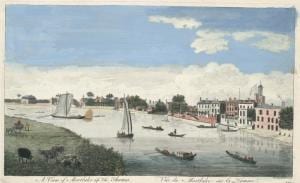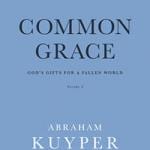I am a landlubber. Oh sure, I grew up in a house less than a football field’s length from a river that we spent hours swimming in every summer; that I crossed regularly horseback in the Spring and Fall; and whose ice I drove loads of hay and grain across in the winter. But I’m still a child of the mountains in the West, and I suspect I will always be more comfortable with my feet on the ground than with all that sketchy water under them. That said, Jerome K. Jerome’s Three Men in a Boat (To Say Nothing of the Dog) and John Graves’s Goodbye to a River have both made me wonder whether a boat trip might not be kind of fun.

Not that I’d want to travel with the gentlemen in Jerome’s classic–they sound exhausting. Though to be fair, British humour really ain’t my cup of tea in the first place. No doubt that’s a moral failing on my part. Still, going on a boat trip up the Thames (or better yet: down the Thames) sounds like it could be fun. At least it sounds fun while I’m sitting at home in a comfortable chair drinking a cup of coffee with a stack of books next to me. I suspect the reality would be much less fun. Because even though I grew up in the mountains in the rural West, I’m really not much of an outdoorsman.
I’m also not entirely sure I’d want to go on a boat trip with John Graves, were he still with us (not that Jerome K. Jerome is still with us either–or ever was in the form in the book, for that matter). He certainly sounds less exhausting, but I’d probably spend the whole time wondering whether he actually wanted me there, or was just being polite biding his time until he could get back to reminiscing about stories he had been told in his youth about things that happened along the Brazos.
Both of these books are about rivers steeped in their own pasts. In Jerome’s book it is a past leveraged for farce, while in Graves’s book it is a past woven inseparably into the present. While Graves does not sugarcoat the bloody history of Texas (particularly the conflict between the Native Americans and American settlers), the undertone of the book makes clear that the proposed dams on the Brazos will erase not just the past but the living heart of the present as well.
This is something I had to wrestle with a bit. The river I grew up next to certainly doesn’t have the same historical depth as the Thames, but it doesn’t even really have the same historical depth as the Brazos. My family moved to the river in the early part of the 20th century. A single generation before that the Native American Tribe that had claimed the land (or been given it as part of their Reservation grant, or both, I’m not sure which) had been resettled by the government elsewhere and replaced by a different tribe (which had its own claim to the land, albeit an older and historically sketchy one). Whatever history the land had before the mid-19th century is lost. That doesn’t mean nothing ever happened there (obviously there were people present–things happened); but it means that a trip down the river with someone knowledgeable about the area is going to result in a narrative of mostly 20th-century goings-on.
All of which shows the relative youth of the American West, even compared to other parts of the US. This raises questions about everything from identity (God has made us to be beings who live in places, which of course He also made) to rootedness to stewardship. I don’t have answers to these questions, and I’m not even sure I can clearly articulate the questions themselves. But at least having read these books I know more clearly that the questions exist. I know that it matters that I grew up on the river in Montana and not the Brazos or the Thames, or even the one nearest to where I live now. Again, just how it matters merits further consideration. Consideration I’d encourage you to undertake as well, not least by picking up and reading Goodbye to a River and Three Men in a Boat.
Dr. Coyle Neal is host of the City of Man Podcast and an Associate Professor of Political Science at Southwest Baptist University in Bolivar, MO












